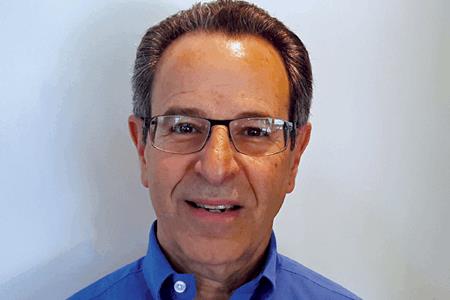Companies To Watch: Tunitas Therapeutics
By Wayne Koberstein, Executive Editor, Life Science Leader
Follow Me On Twitter @WayneKoberstein
Tackling novel treatment and prevention of the most serious allergies with new science and seasoned business talent.
SNAPSHOT
 Tunitas has two arms of products in development for severe allergies, one for treatment, the other for prevention of severe allergies. Epsi-gam is a “genetically engineered bifunctional human fusion protein” containing domains of the IgE and IgG1 proteins that have unique functions on the cells causing allergic reactions. Now in a Phase 1 safety, tolerability, and dose-escalation trial, the drug blocks mast cell activation and production of IgE to halt the reaction. The prevention line is at a much earlier stage, in preparation for clinical trials of vaccines, first for cat, then peanut allergies, and ultimately many others.
Tunitas has two arms of products in development for severe allergies, one for treatment, the other for prevention of severe allergies. Epsi-gam is a “genetically engineered bifunctional human fusion protein” containing domains of the IgE and IgG1 proteins that have unique functions on the cells causing allergic reactions. Now in a Phase 1 safety, tolerability, and dose-escalation trial, the drug blocks mast cell activation and production of IgE to halt the reaction. The prevention line is at a much earlier stage, in preparation for clinical trials of vaccines, first for cat, then peanut allergies, and ultimately many others.
WHAT’S AT STAKE
The most interesting aspects of Tunitas are its bold and possibly breakthrough approach to fighting allergies and its atypical marriage of the academic and business, small biopharma, and Big Pharma mindsets. The company’s founding scientist, Dr. Andrew Saxon, had spent most of his career doing basic research into allergic pathways and mechanisms. Saxon and his colleagues constructed a protein (GE2) that fused two key molecules in the inhibitory mechanism and showed how it could block mast cell activation, the key trigger of allergic reactions. All of the technology under development at Tunitas came out of that research.
“Andy had never started a company before, but as a preeminent clinician and scientist and someone who saw patients with allergy and asthma every day in his clinical practice, he certainly had a sense that what he was doing in his laboratory could have important therapeutic applications,” says Tunitas CEO Nolan Sigal. One day, a casual call from Saxon to Sigal seeking advice led to a business discussion and thereafter to the business itself. “He sent me his papers, and I thought the science was spectacular; after considering the matter together for the next six to nine months, Andy and I decided to start the company.”
Sigal had once imagined himself as an academician for life, with “tweed coat and patches on my elbows.” But a growing interest in industry led him to a job at Merck in 1983, where he rose up through the ranks of research management for the next 10 years, finally to head the company’s immunology program. He then headed drug discovery and development at several biopharma startups before cofounding Tunitas with Saxon in 2007. Now, a large portion of the company’s management and science team has immigrated from Big Pharma to entrepreneurial biopharma.
The two arms of the Tunitas pipeline, allergy treatment with epsi-gam and prevention with vaccines, will require maximum dexterity in the company’s management. Asthma and other serious allergies are huge and fast-growing markets; asthma alone has about 25 million U.S. sufferers. But epsi-gam will be a specialty, rather than primary-care, drug, treating the relatively small, but still impressive population of 2 to 3 million patients whom existing agents fail to help. Tunitas is smart to have established a manufacturing base early in development — it will be critical to clinical development — but the company may also need a commercial partner on board following Phase 2 trials to address actual asthma practice and market conditions.
“We have taken all the possible steps in early development to achieve a great deal of confidence,” Sigal says. “If what we have seen in cell culture and in nonhuman primate models translates to actually working in people, we know we have a great drug.” Following the Phase 1 results, Tunitas plans to file an IND (investigational new drug) application for epsigam in the United States by the end of 2016, then begin Phase 2 studies early the following year to test the drug’s effect on allergy symptoms. From this small company, and the academic lab before it, a mighty business may grow.
Vital Statistics
Employees: 18
Headquarters: San Francisco
Finances:
2010-2014: $9.5M Nondilutive (NIH/other grants)
2015: $10M Series A (Ally Bridge Ventures, WuXi Ventures, RA Capital)
Partner
Patheon (cGMP manufacture)
Latest Updates
May 2016: Presented on potential of epsi-gam as treatment for allergic asthma at the American Thoracic Society meeting
May 2016: Initiated Phase 1 trial for epsi-gam in Australia; top-line results expected early Q3 2016
